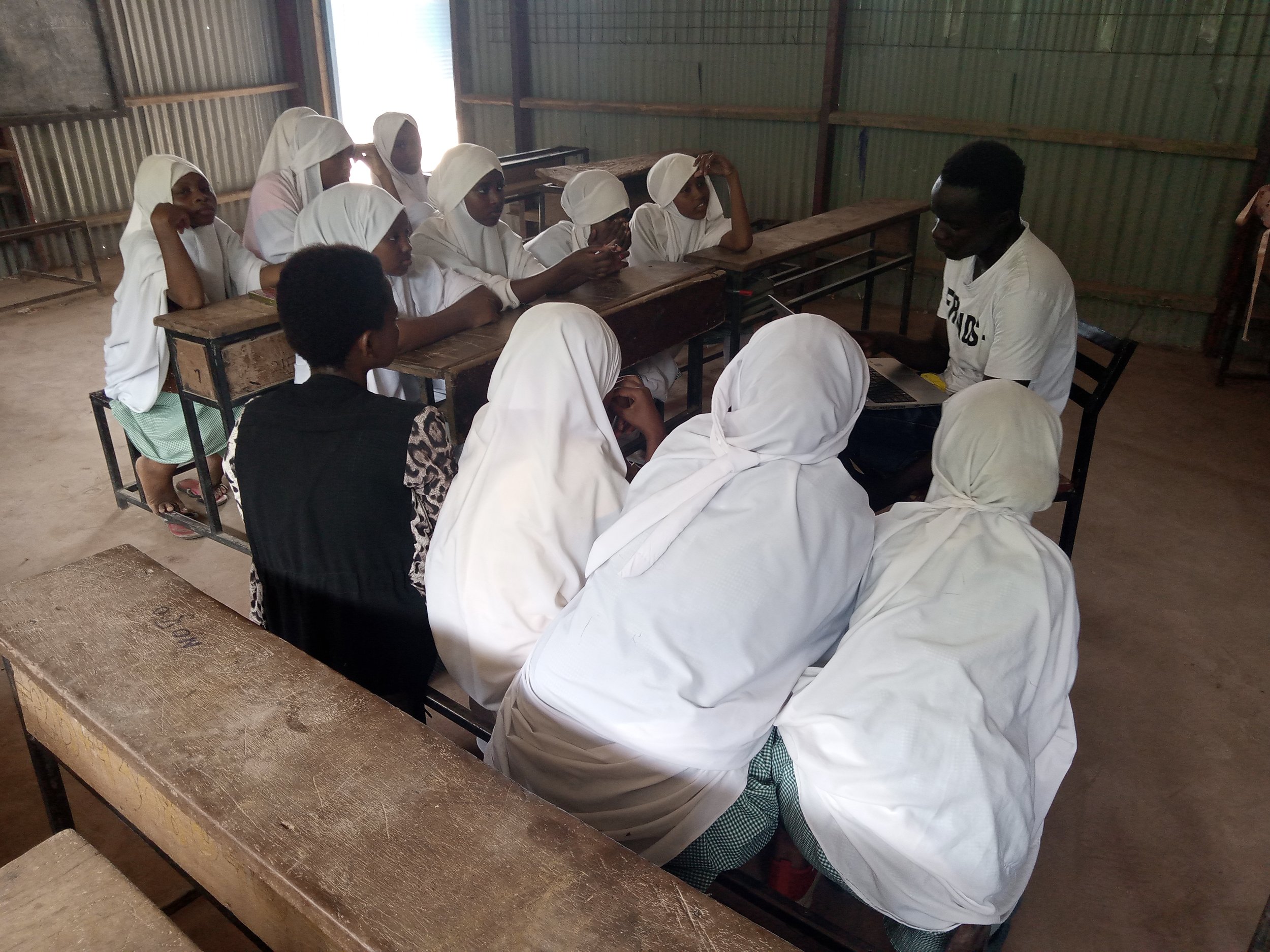Amala Student, Denis, secures research opportunity with Lumiere Education to explore the challenges refugee girls face in accessing education
“Research is one of the best things in the whole world. If you know how to conduct research you will have a lot of opportunities. After completing my research paper with Lumiere I felt confident enough to submit my work and to write to more competitions.” - Denis, Amala student & Lumiere research scholar
It was shortly after Denis joined our pioneering cohort of the Amala High School Diploma in Kakuma, Kenya that he found out about Lumiere’s Research Programme. The programme pairs high school students around the world with PhD mentors to guide them through a 12 week research programme, culminating in a final research paper. His facilitator, Holli, encouraged him and his classmates to apply, which if selected, would give them access to research opportunities, workshops & 1:1 mentoring. With a guiding research topic in mind, Denis applied and was selected. His finished paper; ‘Challenges & opportunities to ensure access to education for girls in Kakuma refugee camp’ is a testament to how research can give voice to those committed to bring about change, starting with their immediate community challenges.
“I’m an ethical leader who wants to bring a big change in the world and the only way is through research, education and beyond.”
As a refugee from South Sudan, Denis has experienced first hand the barriers deterring displaced youth from continuing their education. Denis shared, “I have always been interested in improving quality education in refugee camps. I am more than passionate about it. So when I got this opportunity to do research about the topic I thought this could help, perhaps the UNHCR could use this.” Denis’s time on Amala’s High School Diploma also shaped his focal points for his research. He saw how even with available programmes designed for refugee youth, such as Amala, girls in particular face additional challenges. He explained, “I am interested in not only girls education, but after I was able to join Amala I saw that most people still affected by these challenges {to access education} are girls and women in the camp.”
Denis was accepted onto Lumiere’s Fall Cohort of 2021 and began his meetings with his mentor in late September. Despite some initial hurdles, such as having to work entirely off his phone, unstable internet connection, and a change in mentor early on, Denis very quickly was able to carry out his data collection. Using a friend's laptop he worked on his literature review, and went from school to school interviewing girls in Kakuma. He also spoke to girls who had dropped out of school, as well as focus groups with parents and guardians. Denis explained, “I got a lot of support from Lumiere education and my mentor made the research easier. We talked twice per week and would chat 24/7 via email and whatsapp.” Together, Denis and his mentor, Anay, a PhD student at Oxford University, worked on placing Denis’s personal education experience into the larger context, to construct his hypothesis; “What are the challenges and opportunities for girls in Kakuma Refugee Camp to attend and complete school?”. From there, Denis was able to analyse his interview responses and structure his paper. He completed the programme, with a detailed and pertinent research paper to his name in December 2021!
“I found Denis extremely inspirational, and his work utterly relevant.” - Anay, Lumiere Research Mentor
"Denis' research offers a voice and perspective that is far too rare in the academic world. We're so excited to be able to support scholars like Denis through Lumiere's financial aid program!" - Dhruva Bhat, Co-founder & Director of Lumiere
Denis conducting interviews with refugee girls in Kakuma camp.
Since graduating from Lumiere’s programme, Denis has been continuing his studies on our High School Diploma and has even set his sights on new projects. His current priority is developing his startup called Refugee Voice, which uses refugee stories to bring to light the challenges of those living in different camps and how we can work towards solutions.
“When I first joined the programme I didn’t even know what research meant, or how it was useful, but after this experience I have come to understand and step by step I am more confident in doing research.”
Amala’s curriculum has also had an impact on Denis’s drive to pursue work in research; “the Amala curriculum is designed in a way that it can motivate you to take action, to make improvements. For example, after I completed the Ethical Leadership course I was more influenced to take action in my community.” With his startup work and his Personal Interest Project (PIP), a component within Amala’s High School Diploma where students delve into an area of personal interest and report on their learnings, Denis will no doubt have plenty of upcoming chances to showcase his sharpened research skills and use his findings to make a positive impact in his community.
“I believe by conducting research it would help NGOs and government organisations to understand better. I could share data with them, including Amala. I am hopeful for more students like me to be able to complete high school.”
Amala is currently taking into account the suggestions made by Denis in the paper to improve the inclusion of female students on our programmes.
Lumiere Research Scholar Program offers students the opportunity to work 1-on-1 with a PhD mentor to learn about the cutting edge in their field of interest and produce an independently-developed research project. Find out more here.

